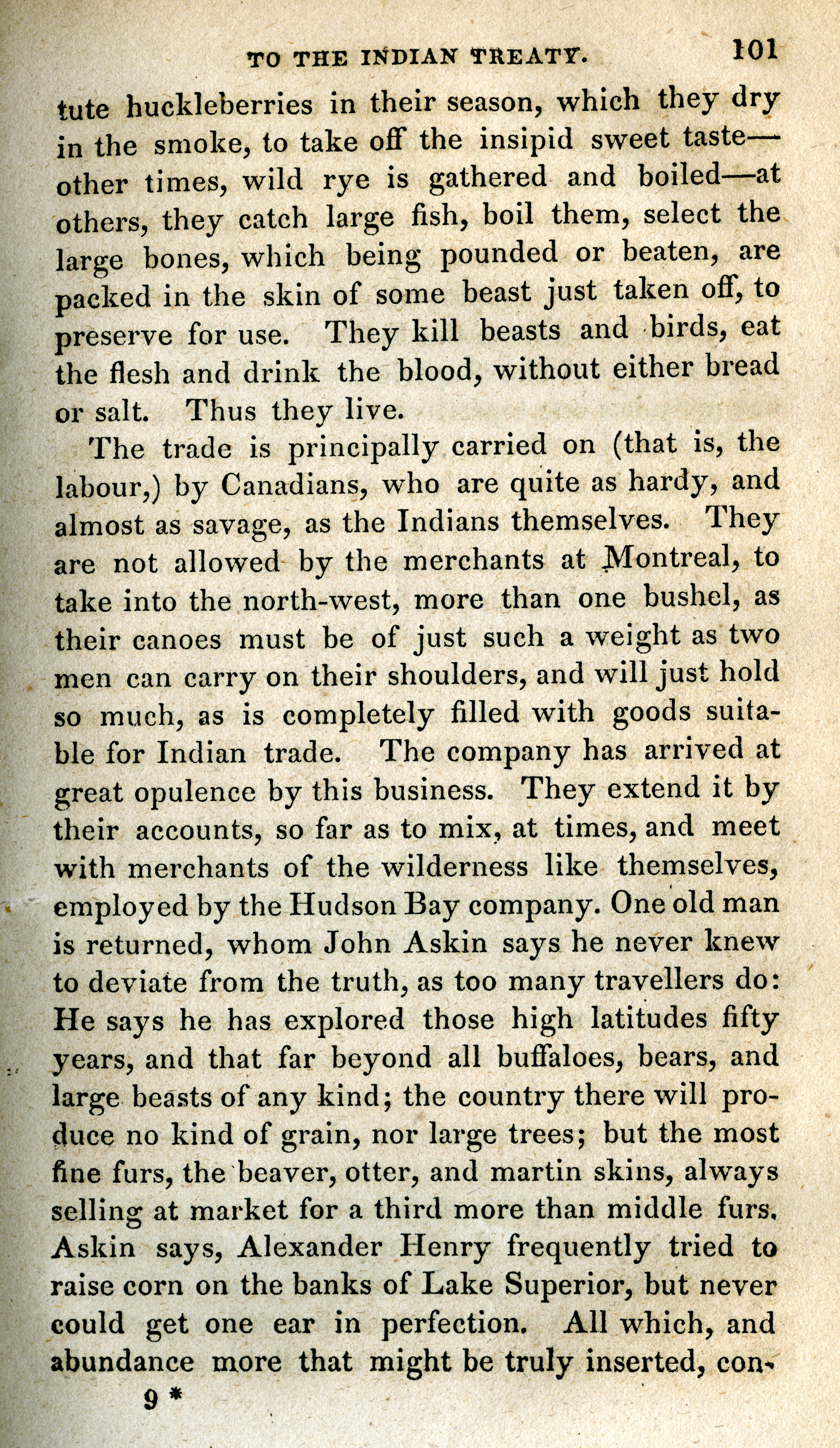tute huckleberries in their season, which they
dry
in the smoke, to take off the insipid sweet taste —
other times,
wild rye is gathered and boiled — at
others, they catch large fish, boil
them, select the
large bones, which being pounded or beaten, are
packed in the skin of some beast just taken off, to
preserve for use. They
kill beasts and birds, eat
the flesh and drink the blood, without either
bread
or salt. Thus they live.
The trade is principally carried on (that is, the
labour,) by Canadians,
who are quite as hardy, and
almost as savage, as the Indians themselves.
They
are not allowed by the merchants at Montreal, to
take into the north-west, more than one
bushel, as
their canoes must be of just such a weight as two
men can
carry on their shoulders, and will just hold
so much, as is completely
filled with goods suita-
ble for Indian trade. The company has arrived
at
great opulence by this business. They extend it by
their accounts,
so far as to mix, at times, and meet
with merchants of the wilderness like
themselves,
employed by the Hudson Bay company. One old man
is
returned, whom John Askin says he never
knew
to deviate from the truth, as too many travellers do:
He says he
has explored those high latitudes fifty
years, and that far beyond all
buffaloes, bears, and
large beasts of any kind; the country there will
pro-
duce no kind of grain, nor large trees; but the most
fine furs,
the beaver, otter, and martin skins, always
selling at market for a third
more than middle furs.
Askin says,
Alexander Henry frequently tried to
raise corn on the banks of Lake Superior, but
never
could get one ear in perfection. All which, and
abundance more
that might be truly inserted, con-

